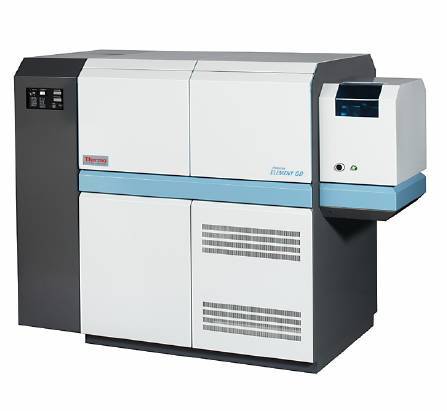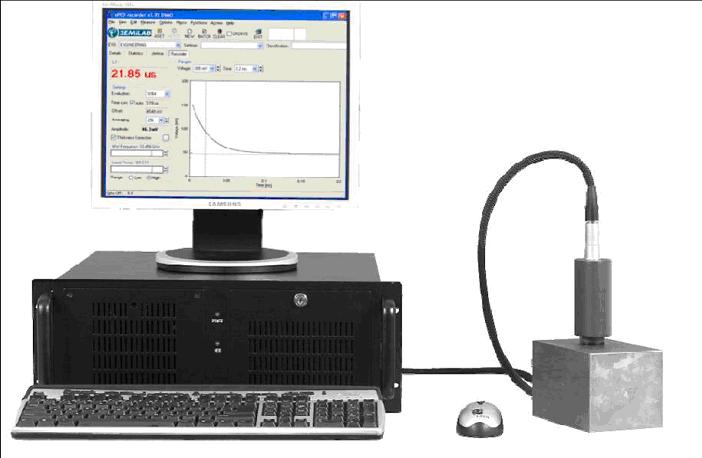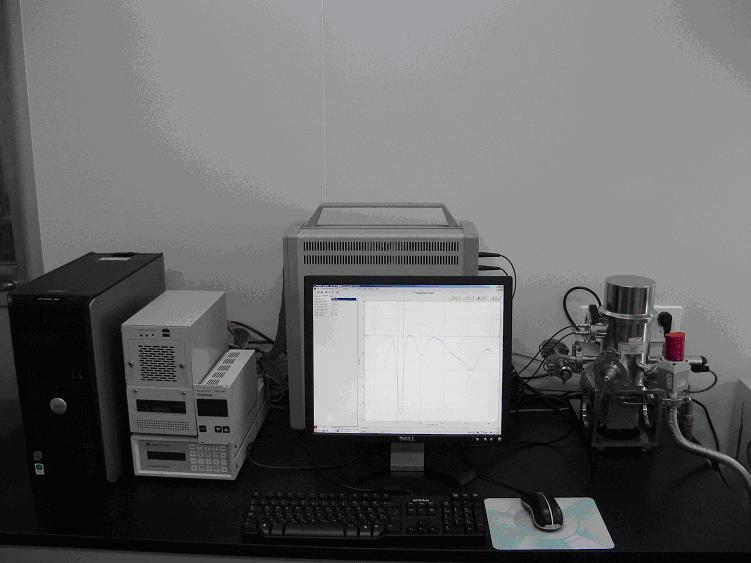|
|
Analysis & Testing Platform of Solar-grade Silicon |
|
|
Element GD Glow Discharge Mass Spectrometer

The level of impurities in solar cell silicon is crucial since it limits the photovoltaic efficiency of the resulting solar cell. Rapid and accurate process feedback on impurity levels is therefore crucial in a production environment. The Thermo Scientific ELEMENT GD is the only instrument that can provide short times of less than 20 minutes for the analysis of bulk solar cell silicon directly from the solid material. The ELEMENT GD is capable of determining impurities directly in the solar cellsilicon at sub ppb concentration levels for many elements. It is a routine tool that is robust enough to be used in multi-user, multi-shift production facilities.Glow Discharge Mass Spectrometer (GD-MS) to measure the main doping elements, such as Al, B and P, as well as trace elements, such as Ca and Fe, in various multi crystalline silicon materials. The results show that GD-MS is a powerful tool that can detect the concentration of Al, B, P, Ca and Fe at level as low as ppb with good accuracy.
Specifications:
Sensitivity (low resolution): > 1 x 1011 cps (1 x 10-8 A) for copper (total ion current, peak height)
Sensitivity (medium resolution): > 1 x 1010 cps (1 x 10-9 A) for copper (total ion current, peak height)
Dark Noise: < 0.2 cps
Dynamic Range: > 1012 linear with automatic cross calibration
Minimum integration times:
counting mode: 0.1 ms
analog mode: 1 ms
faraday mode: 1 ms
Mass resolution: 3 300, 3 4 000, 3 10 000, fixed resolutions, fully computer-controlled
Resolution switching times: < 1 s
Mass stability 25 ppm / 8 hrs
Scan Speed (magnetic): < 150 ms from m/z 7 to 238 to 7
Scan Speed (electric): 1 ms/jump, independent of mass range
WT-1000 Lifetime Tester for Wafers

The WT-1000B is a one-point non-contact minority carrier lifetime measuring tool. It is capable of monitoring defects and contamination both in the bulk and in the surface region of silicon blocks. It is a useful tool for investigation and quality control of wafers, blocks and solar cells.
Specifications
o Materials: Si, Ge
o Resistivity range: 0.1 to 1000 Ωcm
o Laser: 904 nm wavelength
o Meas. spot diam.: 3 mm
o Microwave source: variable frequency around 10.3GHz
o Lifetime range: 100 ns to 20 ms
o Lifetime resolution: 0.1 %
o Measurement time: 30 ms/data point
o Single shot or continuous measurement
The DLS-83D offers a fully automatic measurement mode as well as providing complete interpretation of the measured data, including impurity identification and concentration determination without any need for user interaction.
DLTS Deep Level Transient Spectroscopy

The deep level transient spectroscopy (DLTS) is the best technique for monitoring and characterizing deep levels caused by intentionally or unintentionally introduced impurities and defects in semiconductor materials and complete devices. It is an extremely versatile method for determining all parameters associated with deep traps including energy level, capture cross section and concentration distribution. It permits identification of the impurities and is capable of detecting contamination concentrations below 109 atoms/cm3.
Specification:
Pulse generator:
- Voltage range: ±20 V
- current range, max: ±10 mA
- Voltage resolution: 10mV
- Pulse width: 0.05 us -65 ms
Capacitance measuring bridge
- Measuring signal: 100mV @ 1Mhz
- Capacitance range 1-10 pF, 10-100 pF,
100-1000pF
- Resolution: 0.01pF
- Compensator: Auto 0.01-1000pF
Lock-In integrator:
- Frequency : 0.1 Hz -2.5 kHz
- Range : 100mV, 1000mV, auto/manual
- Integration constant (manual): 0.3, 1, 3 s
- Output (DLTS signal): 0.01mV -1000mV
Cryostats for different temperature ranges:
From 20K to 300 K, Closed Cycle Refrigerator System (He-cryostat)
o temperature range : 20 to 300K
o temperature homogeneity : < 0.5K
o temperature stability : 0.1K
o temperature accuracy : < 1K or 1%
o cool-down time : 30 min
|
|
|